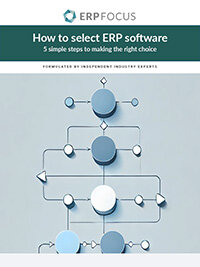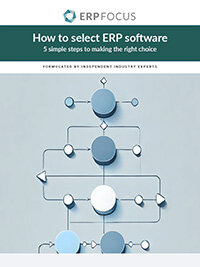When is it time to replace a legacy ERP system?
In answering this question, it’s important to recognize that if you wait until you absolutely need a new system, you’re likely already behind schedule.
When organizations delay an ERP upgrade until the last moment, they often end up with rushed, lower-quality implementations or outright failures.
Implementation timelines for an ERP system upgrade
Even a straightforward Tier 3 system upgrade can take about a year to complete properly, while a Tier 1 implementation typically requires around three years, and a complex, multi-country rollout can extend beyond seven years. T
These timelines reflect full-functionality ERP systems, not just basic accounting packages with limited buy/assemble/stock/sell capabilities.
Why so long?
Some companies implement systems much faster, but over 70% of companies consider their implementations a disappointment or outright failures.
While several elements can contribute, a successful ERP upgrade requires the careful execution of these key steps:
- Drafting a comprehensive system design that outlines precise goals and deliverables
- Reviewing the market to see what is available within the budget
- Shortlisting suppliers and requesting detailed proposals
- Evaluating proposals and scheduling live demonstrations of each ERP solution’s functionality
- Conducting a gap analysis on the preferred system to identify missing features
- Defining necessary customizations and redesigning business processes to address those gaps
- Securing final quotes, checking customer references, and negotiating contracts
- Selecting and interviewing implementation partners who will guide the ERP upgrade
When to initiate the decision process
Because of these steps, organizations often need to decide whether to switch ERP systems years before the existing system reaches end of life. That requires foresight, but certain triggers can prompt the decision process sooner, even if those triggers sometimes feel subjective.
Vendor end-of-support announcements
When support for your current system ends, running an unsupported ERP becomes a significant risk, prompting an ERP upgrade. Similarly, outdated hardware and operating systems can lose vendor support, and the pool of experienced professionals who understand that technology shrinks as talent moves to modern platforms.
Regulatory changes
Another trigger can be forecasted regulatory changes. For instance, when a government transitions from a simple sales tax to VAT, older ERP solutions may lack the flexibility to adapt cost-effectively. In those cases, continuing to patch an old system no longer makes sense compared to investing in ERP modernization.
Business growth and transaction volumes
Changes within your business represent another common trigger. Planned growth that increases headcount, transaction volumes, or geographic footprint can push your legacy system past its limits.
If you know your company will open new facilities, expand into e-commerce, or establish foreign subsidiaries, you should factor switching ERP systems into your strategic roadmap long before transaction volumes overwhelm your current solution.
Emerging business paradigms
Lastly, new business paradigms may be on the horizon, such as the demand for live data insights, AI-powered automation, or the opening of subsidiaries in other countries that require local-language versions of the software.
We've previously mentioned that the core in-house team for an ERP implementation should never be disbanded in full; it should be retained to ensure proactive system changes (from upgrades to replacements).
When that advice is taken, the team can periodically reconvene to review the likelihood and impact of the above triggers so that expensive surprises can be avoided.
Free white paper

How to Select ERP
Learn to select your ERP in 5 easy steps by following our expert's advice

Related articles
-

A beginner’s guide to ERP integration
What is ERP integration, why it matters, and more!
-

CMMC Compliance: What Aerospace and Defense Manufacturers Need to Know
Key insights on CMMC compliance, deadlines, and securing DoD contracts with CMMC 2.0 certificatio...
-

ERP – Is doing nothing an option?
What difference could ERP software make to your organization?

